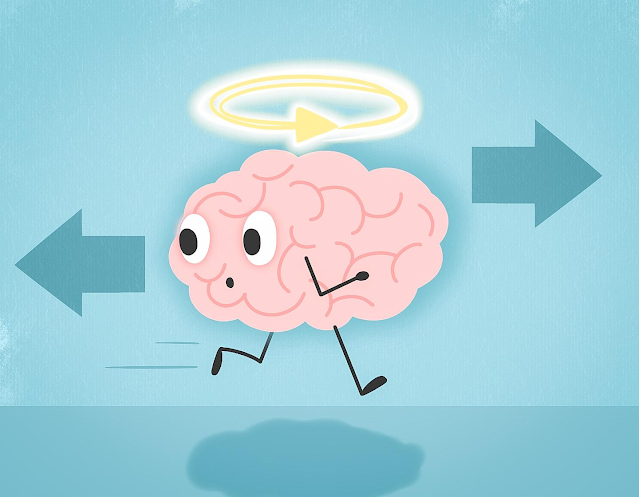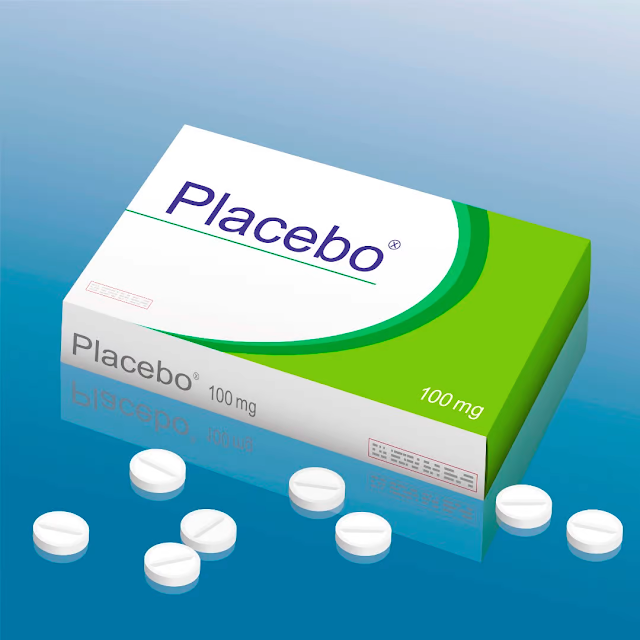I was wrong about nutrition
This blog post is from the Nurse Kim archives of myth busting. I want to share some "alternative" or maybe just lesser known health and wellness viewpoints for you to chew on.
*These posts are not intended as official medical advice.
They ARE meant to be fun, informative, and thought provoking, hopefully sparking an interest for you to do your own research (you can start with the links I provide!) and discover the marvels of the human body, and how it can function at its optimal performance level if we understand how it works and interacts with our environment and our diet.
I have a passion for health and wellness through lifestyle and nutrition and have done thousands of hours of research in addition to being a registered nurse for 24 years. I have done A LOT of self-experimentation in and around diet, lifestyle, body care, and supplementation and have spent a lot of time looking into the science behind it all (or lack thereof!). Check back regularly for the latest post!
-----
Well, that’s disconcerting considering I have dozens of blog posts on here related to the topic.
Let me clarify, I wasn’t wrong about everything
exactly, but on my own journey of health and wellness, there has been a sort of
perpetual evolution of thought, and I think in most contexts, this is a good
thing. I actually find myself having more respect for health and
wellness gurus I follow when I see that they can change their mind about
something after being presented with more info rather than sticking to a
dogmatic view of things.
Before we get more in depth about my wrong-ness, I
will also quantify my statement by saying that what has changed for me does not
negate most of my other viewpoints, but rather refines and reframes them
in a more accurate way.
So, let’s get into it.
As I said in my intro, I have been all over the board in my
nutrition journey, from raw vegan to carnivore and everything in between. What
I had settled on for the longest stretch of my diet discovery was a low carb,
whole foods approach to eating. I bought into the idea that carbs/sugar = bad
and protein and fat = good. That said, I have also since evolved to believe
that as soon as we start labeling things as “good” or “bad,” trouble is coming.
We have seen this done by “experts” in nutrition over and
over again… eggs are bad, oops... eggs are good, butter is bad, oops… butter is
good, and the list goes on. When I was in the low carb headspace, I used
to think that carbs broke our metabolisms, plain and simple, and the high carb
diet that most Americans are on is the reason our bodies can no longer process
sugars resulting in insulin resistance and Type 2 Diabetes which then
predisposes us to a slew of other health issues including heart disease,
cancer, mood disorders, PCOS, Alzheimer’s, and the list goes on.
But how does that make any sense? We know as humans we are
omnivorous and able to survive on a variety of foods. There are whole foods containing
carbs/sugar like fruit, honey, vegetables, dairy, and starches in our environment
and many ancient and modern people groups have eaten them with no issues. This unanswered
dilemma actually plagued me quite a bit while I was low carb and thinking that
carbs were the root of all evil.
So, let’s talk about carbs for a minute.
The first thing to note – your body has a baseline requirement
for glucose. In fact, if you do not consume glucose (in the form of
carbs/sugar), your liver will make it in a process called gluconeogenesis. This
is why people consuming minimal or even zero carb diets are able to maintain
their blood glucose levels. The problem is gluconeogenesis is a very energetically
expensive process for the body. The body has to raise the stress hormone cortisol
to keep it going long term. The body also has to spare that glucose for tissues
that really need it and can’t run on other types of fuel, like the
central nervous system, brain, and red blood cells. Therefore, other organs and
systems (like our thyroids and sex hormones) begin to suffer.
This is what happened to me after 5 years on a very low carb
diet. Suddenly, my thyroid activity decreased, and I started gaining weight. At
first, I thought it par for the course since I have a family history of low
thyroid, but then I started digging into the research. Turns out, the thyroid wants
carbohydrates. And guess what? When I strategically started adding whole
food sources of carbs back in (I will talk more about exactly what I eat in a minute),
my thyroid fixed itself and I lost the weight, IMAGINE THAT!
What I now understand is that we are supposed to be able to use both carbs and fat for fuel, FULL STOP.
Our cells are
designed to turn both of these substrates into energy. The human body,
for survival reasons, is remarkably adaptive. When we fast (at night when we
sleep for example) or don’t have access to carbohydrate energy, our body
switches to fat burning. When we have access to carbs/glucose, our body
switches to carb burning. Or this is what is supposed to happen with a
healthy metabolism.
What has unfortunately happened instead with the consumption
of modern processed foods containing artificial additives, gums, fillers, pesticides,
hormones, antibiotics, artificial sweeteners, and lots of polyunsaturated
“vegetable” oils is that our energy production at the cellular level becomes
dysfunctional. That dysfunction stems both directly from these toxic
elements (and others in our environment, water, and body care products) and indirectly
from the disruption these things cause to our digestive tract (or gut
microbiome). This results not only in the inability to process glucose at the cellular
level, but also causes an increase in our stress hormones (like cortisol),
which further triggers the release and burning of fatty acids, something the
body adaptively does in a high stress state.
Well, isn’t fat burning good? Won’t people lose weight in this high stress state?
Unfortunately, no. That’s not how it works. When
insulin is high as a result of the body trying to force glucose into the cells
(which can’t take it because they are burning fat), the body goes into fat
storage mode as insulin is the fat storage hormone. As the predominant stress
hormone cortisol is elevated even more, it works to slow down the metabolism since
in most high stress environments, it is beneficial for the body to conserve
energy.
As briefly mentioned above, our cells can only process one
form of substrate at a time, fat OR glucose. When we are burning fat, we cannot
simultaneously burn glucose and vice versa. This increased lipolysis (fat
burning) related to the release of stress hormones inhibits our ability to
process glucose through the cell. That glucose then backs up in the bloodstream,
causing the pancreas to release even more insulin to drive the glucose
into the cell. And THIS my friends, is insulin resistance.
When this goes on for long enough, it develops into Type 2
Diabetes, which is comprised of high insulin levels and high glucose
levels. But the problem is not the dietary glucose, the problem is the
cellular dysfunction in the high stress state due to the things I mentioned
above in processed foods causing systemic inflammation and gut dysbiosis.
Especially “vegetable” oils.
Vegetable in quotes because these oils have nothing
to do with vegetables and are actually chemically extracted from seeds. I have
harped on vegetable oils plenty in the past, but suffice it to say, if I were
to advise anyone to remove ONE THING from their diet entirely, it would be seed
oils (including in all processed foods):
- Safflower
- Grapeseed
- Rapeseed
- Sunflower
- Corn
- Cottonseed
- Soybean
- Sesame
- Rice bran
- Peanut
- Canola
This is not an exhaustive list, but basically, everything
but avocado, olive, coconut, and palm kernel oil (these oils have a higher monounsaturated and/or saturated fat content and therefore are more stable and better for you than polyunsaturated vegetable seed oils).
The polyunsaturated fats in seed oils (poly meaning many
bonds) are unstable and easily oxidize in the human body. When our cellular and
mitochondrial membranes are made of these fats (instead of saturated or
monounsaturated fat) they don’t function or make energy out of glucose properly.
So back to my brain swap on carbs.
Many alternative diet gurus are teaching that reducing or
removing carbs/sugar from the diet is the answer. But as you can see from the
info shared above, this is just a Band-Aid to the underlying problem of
cellular metabolic dysfunction. And if these individuals reintroduce carbs
without correcting the underlying problem, all their issues with insulin
resistance will return.
Again, this never made sense to me while in the low carb
space. I saw a number of people “reverse” their Type 2 Diabetes only to
reintroduce some carbs and revert right back. This is not consistent with our history
as a species. We should be able to eat the foods in our environment without
breaking our metabolism.
So… what should we eat?
Protein should always be the priority, about 100 grams per
day, and should come mainly from ruminant animals (grass grazing animals) which
have the highest nutrient density of all foods. From there, you should
experiment with whole food sources of carbohydrates to see what you tolerate
best. Some people tolerate vegetables (fermented are best) and some don’t. Most
people can tolerate fruits, fruit juices, honey, and maple syrup as these are
easy for the body to digest. Others can also enjoy dairy without any issues,
but some people can’t. White rice and potatoes are other good options, but
again, some people tolerate them better than others. Processed foods including
most grain based products are really hard on the gut and are best avoided.
If any of these sources of carbohydrates are causing
digestive issues for you personally, they should be eliminated as digestive
issues can lead to endotoxin production in the gut, chronic inflammation, increased
stress hormones, and the cellular metabolic dysfunction discussed above. So, there
is not a one size fits all. The takeaways here are:
- Carbs are not the problem – there… I said it
- Vegetable seed oils are a huge problem
- Processed food (boxed and packaged products with an ingredient list a mile long) are a huge problem
- Protein is a priority
- Make sure at least 20% of your calories are coming from healthy fats like avocados, olive oil, butter, ghee, coconut oil, and dairy if you tolerate it




Comments
Post a Comment